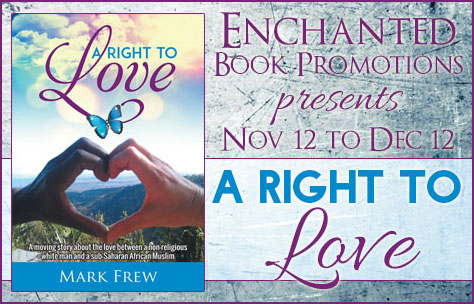Guest Post: Inspiration
First of all, we need a gay folk hero, but not a gay folk hero who only gay people can look up to but one who can be appreciated by the greater public. But further, a gay folk hero who, like everyone, also can fall in love, not just in lust. The only real image we have of the stereotypical gay man is what is seen at the Sydney Gay and Lesbian Mardi Gras, whereas many gay men and women are just like straight men and women who lead routine work lives and remain faithful to one partner.
Secondly, we need a gay love story that can be appreciated by the mainstream. This is why I avoided as much as possible overt descriptions of intimacy between Michael and Ibrahim. When I read or watch love stories between a man and a woman, as I have absolutely no physical attraction to women, anything that relates specifically to the woman in the sexual act is totally unappealing to me and therefore I don’t appreciate the overall story as a result. Love stories between a man and a woman where sex is merely implied or completely absent I can appreciate. For example, Jane Austin’s Pride and Prejudice remains a favourite book of mine, even though the story is about the development of the love between a man, Mr Darcy, and a woman, Elizabeth Bennett. I have no idea of the physical attraction Mr Darcy had for Elizabeth but I can relate to the development of love between the two. I believe, although this is yet to be proven, that by having a gay love story appreciated by the wider public, this may help those who staunchly don’t understand homosexuality see this phenomenon not simply through the lens of gaudy sexual attraction, which is the way homosexuality is generally perceived, but through love and affection in the same way it occurs between heterosexual couples.
Thirdly, I wanted to speak out to religious people, in particular, Christians and Muslims. I wanted to show that there doesn’t have to be what is currently perceived as a divide between religious people and gay people. Rather, religious people and gay people can co-exist quite happily. This is why Ibrahim remains faithful to his religion right to the end of the book. I was inspired to do this because of an episode on the program Compass some years ago called Gay Muslim and I remember a gay Muslim saying in despair that he didn’t want anyone to take away his Islam from him, even though he was gay. Although for me there is no room for religion in my life, I realise that for many religious people who are gay, the religion still remains an important aspect in theirs. I wanted to show how it was possible for all these elements to be in harmony. And this can only be achieved through love, the real, deep, heartfelt love for all humankind.
About the Book
Author: Mark Frew
Genre: Gay Fiction / Religious / Psychological
Book blurb: The story is about a non-religious man, called Michael, who is a teacher in a modern college. He meets a student, Polycarp, who is a refugee from Rwanda and who has lost all of his family. Michael decides to travel to Africa to find out if any of Polycarp’s family members are still alive. In the process, he meets a devout Muslim sub-Saharan African man, Ibrahim. Michael and Ibrahim fall in love and as their relationship develops, Michael and Ibrahim have to adjust to each other’s outlooks on life. Throughout the process, the interpretation of both the Bible and the Koran, and how homosexuality can be accepted within this framework are discussed.
Author bio
Mark Frew is a teacher of English to speakers of other languages. He has a bachelor degree in chemistry and is an avid linguist who speaks several languages. Mark Frew is also the author of Mauritian Creole in Seven Easy Lessons, Michael and the Multicoloured Gospel and Farewell My Pashtun.


